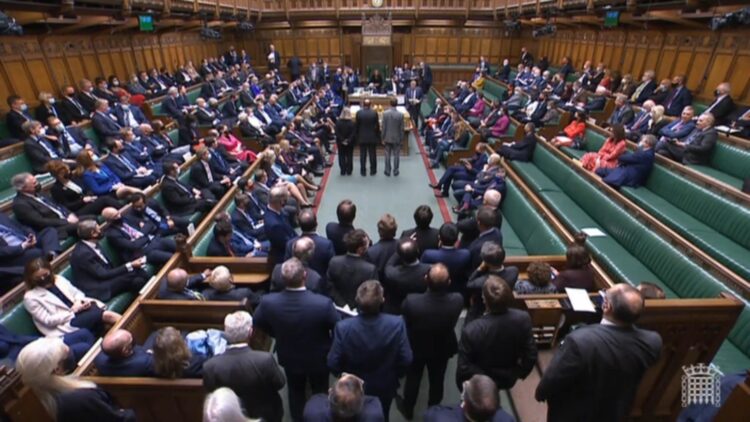By Ben Kerrigan-
Mps are to end no fault eviction bans after a protracted process that has seen a delay in the prohibition passed through parliament.
While the proposed law aims to end landlords’ ability to evict tenants without cause with just two months’ notice, campaigners argue that it has been subjected to unjustified delays, leaving tens of thousands of tenants displaced.
The Renters Reform Bill, which includes the ban on no-fault evictions, was initially promised in the Conservative Party’s 2019 election manifesto.
Critics assert that the government has been slow to fulfill this pledge. They point to the fact that Ministry of Justice data revealed a 41% increase in no-fault evictions in England between April and June this year compared to the same period in 2022.
Labour, the main opposition party, expressed concerns that the Renters Reform Bill might be significantly delayed, even if it eventually becomes law.
This apprehension arises from the government’s plan to first make changes to the court system before implementing the no-fault eviction ban.
Housing Minister Rachel Maclean defended the government’s approach, stating that the Conservatives would uphold their 2019 manifesto commitment to eliminate no-fault evictions while strengthening landlords’ rights, particularly in cases involving anti-social behavior.
She maintained that the Conservatives were making the necessary long-term decisions to create a more secure rental market for both tenants and landlords.
However, Labour’s deputy leader, Angela Rayners, accused the government of a “grubby deal with Tory backbenchers” and alleged that ministers would have undue influence over when the court improvements are considered sufficient.
She criticized the government for using its own failure to potentially delay the implementation of its promises to renters.
Legislation’s Objectives and Concerns
In addition to protecting tenants, the Renters Reform Bill is intended to make it easier for landlords to regain possession of their properties from tenants engaging in anti-social behavior. The government argues that court process reforms will expedite this process.
Despite this, concerns persist that court improvements could take years, resulting in a de facto postponement of the abolition of Section 21, a provision allowing no-fault evictions.
These concerns were raised following a report by the Levelling-Up Committee, chaired by Labour, which recommended that the government first establish clear court processing targets before abolishing Section 21.
Campaign group 38 Degrees conducted research that found 87 MPs earned an income from residential property, with 68 of them being Conservatives.
The potential backlash from within the party stems from concerns that the legislation might reduce the supply of private rented accommodation.
Tom Darling, campaign manager of the Renters’ Reform Coalition, criticized the government for “holding up this legislation,” which he deemed the “bare minimum” renters required.
He emphasized the need for longer notice periods, enhanced security, and stricter requirements for landlords to provide quality homes.
The National Residential Landlords Association (NRLA) warned of “uncertainty” surrounding the bill, making it difficult for landlords and renters to plan for the future.
NRLA chief executive Ben Beadle stressed the importance of securing the confidence of responsible landlords to prevent a worsening shortage of rental homes.
The Renters Reform Bill and the controversy surrounding it illustrate the complexities and challenges of balancing tenant protection with the interests of landlords and the broader housing market. The legislation’s ultimate fate and timeline will likely remain a topic of debate in the foreseeable future.

